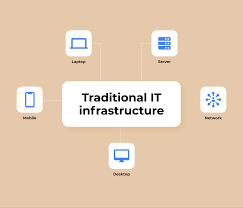Empowering Businesses Through IT Consulting and Software Development Solutions
The Synergy of IT Consulting and Software Development
IT consulting and software development are two integral components of modern businesses’ digital strategies. While IT consulting focuses on providing expert advice and guidance to optimize IT infrastructure, software development involves creating custom solutions to meet specific business needs.
Role of IT Consulting
IT consulting services play a crucial role in helping businesses align their technology strategies with their overall goals. Consultants assess existing systems, identify areas for improvement, and recommend solutions to enhance efficiency, security, and scalability.
By leveraging the expertise of IT consultants, organizations can streamline operations, reduce costs, and stay competitive in today’s rapidly evolving digital landscape. Consultants also provide valuable insights into emerging technologies and best practices to future-proof businesses against potential challenges.
Importance of Software Development
Software development is essential for creating tailored solutions that address unique business requirements. Whether developing a customer relationship management (CRM) system, an e-commerce platform, or a mobile application, custom software enables organizations to differentiate themselves in the market.
Software developers leverage programming languages such as Java, Python, C#, and JavaScript to build robust applications that automate processes, improve user experiences, and drive innovation. Through agile development methodologies, developers collaborate closely with stakeholders to deliver solutions that meet evolving needs.
The Power of Integration
When combined effectively, IT consulting and software development offer a powerful synergy that drives organizational growth and success. IT consultants provide strategic guidance on technology investments and infrastructure design, while software developers bring these recommendations to life through custom solutions.
This collaboration ensures that businesses not only have a solid technological foundation but also possess the tools necessary to adapt to changing market dynamics and customer demands. By integrating IT consulting with software development, organizations can achieve greater efficiency, agility, and innovation.
In Conclusion
IT consulting and software development are indispensable elements of modern business operations. By harnessing the expertise of consultants and developers alike, organizations can navigate the complexities of the digital landscape with confidence and drive sustainable growth in an increasingly competitive environment.
8 Essential Tips for Successful IT Consulting in Software Development
- Understand the client’s requirements clearly before starting any development.
- Follow best coding practices to ensure high-quality and maintainable code.
- Regularly communicate with the client to provide updates and gather feedback.
- Stay updated with the latest technologies and trends in software development.
- Perform thorough testing to identify and fix bugs early in the development process.
- Document your code properly for easier maintenance and future reference.
- Collaborate effectively with team members to ensure smooth project execution.
- Prioritize security measures to protect the software from potential threats.
Understand the client’s requirements clearly before starting any development.
To ensure the success of IT consulting and software development projects, it is crucial to understand the client’s requirements clearly before initiating any development work. By comprehensively grasping the client’s needs, objectives, and expectations from the outset, consultants and developers can align their efforts to deliver tailored solutions that precisely meet the client’s specifications. This proactive approach not only minimizes misunderstandings and rework but also fosters a collaborative partnership between the service provider and the client, leading to more efficient project outcomes and enhanced client satisfaction.
Follow best coding practices to ensure high-quality and maintainable code.
Following best coding practices is essential in the realm of IT consulting and software development to uphold the standards of high-quality and maintainable code. By adhering to established coding guidelines, developers can enhance the readability, scalability, and efficiency of their codebase. Implementing best practices such as consistent naming conventions, modular design principles, and thorough documentation not only improves the overall quality of the software but also facilitates collaboration among team members and simplifies future maintenance tasks. Embracing these coding standards ensures that the code remains robust, adaptable, and sustainable throughout its lifecycle, ultimately contributing to the success of IT projects.
Regularly communicate with the client to provide updates and gather feedback.
Regular communication with the client is essential in the realm of IT consulting and software development. By providing regular updates on project progress and actively seeking feedback from the client, consultants and developers can ensure that the final product aligns with the client’s expectations and requirements. This open line of communication fosters transparency, builds trust, and allows for timely adjustments to be made throughout the development process, ultimately leading to a successful outcome that meets the client’s needs effectively.
Stay updated with the latest technologies and trends in software development.
Staying updated with the latest technologies and trends in software development is crucial for IT consulting professionals to remain competitive and deliver cutting-edge solutions to their clients. By keeping abreast of advancements in programming languages, frameworks, and tools, consultants can offer innovative strategies that leverage the most current technologies to address complex business challenges effectively. Continuous learning and adaptation to emerging trends enable IT consultants to provide valuable insights and recommendations that drive digital transformation and enhance organizational performance.
Perform thorough testing to identify and fix bugs early in the development process.
Performing thorough testing is a critical step in the IT consulting and software development process to identify and rectify bugs early on. By conducting comprehensive testing procedures, including unit testing, integration testing, and user acceptance testing, developers can catch potential issues before they escalate into larger problems. This proactive approach not only ensures the quality and reliability of the software but also helps in delivering a seamless user experience. Addressing bugs early in the development cycle saves time and resources in the long run, ultimately leading to a more robust and successful end product.
Document your code properly for easier maintenance and future reference.
Properly documenting your code is essential in the realms of IT consulting and software development. By providing clear and comprehensive documentation, you not only facilitate easier maintenance of the codebase but also ensure that future reference and troubleshooting become more efficient. Detailed documentation serves as a roadmap for developers, enabling them to understand the logic behind the code, its functionality, and potential areas for improvement or modification. Investing time in documenting your code upfront can save valuable resources in the long run and contribute to the overall success of your IT projects.
Collaborate effectively with team members to ensure smooth project execution.
Collaborating effectively with team members is crucial to ensuring the smooth execution of IT consulting and software development projects. By fostering open communication, sharing ideas, and coordinating efforts, team members can leverage their diverse skills and expertise to overcome challenges and drive project success. Effective collaboration promotes synergy among team members, enhances creativity, and fosters a sense of ownership and accountability. By working together harmoniously, team members can deliver high-quality solutions that meet client expectations and contribute to the overall success of the project.
Prioritize security measures to protect the software from potential threats.
It is crucial to prioritize security measures in IT consulting and software development to safeguard the software from potential threats. By implementing robust security protocols and best practices, such as encryption, access control, and regular security audits, organizations can mitigate risks and protect sensitive data from unauthorized access or cyberattacks. Prioritizing security not only ensures the integrity of the software but also fosters trust among users and stakeholders, ultimately enhancing the overall reliability and reputation of the system.







